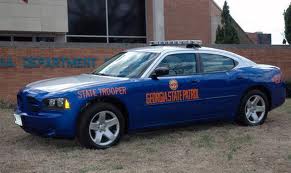 Williams Oinonen LLC often receives phone calls from Georgia citizens, innocent owners of vehicles, homes, and/or cash who have had their property taken by law enforcement agents because, supposedly, their property is related to a drug offense. The process of taking property in this manner is called forfeiture. And Georgia Code 16-13-49 primarily governs forfeitures related to alleged drug sales/transactions. What’s important for you to know is that you can fight to regain your property. But you must act quickly, because forfeiture laws and rules are complicated, and very time sensitive.
Williams Oinonen LLC often receives phone calls from Georgia citizens, innocent owners of vehicles, homes, and/or cash who have had their property taken by law enforcement agents because, supposedly, their property is related to a drug offense. The process of taking property in this manner is called forfeiture. And Georgia Code 16-13-49 primarily governs forfeitures related to alleged drug sales/transactions. What’s important for you to know is that you can fight to regain your property. But you must act quickly, because forfeiture laws and rules are complicated, and very time sensitive.
For example, Georgia Code 16-13-49 requires you to respond within thirty (30) days of receiving notice that your property is subject to forfeiture. If you don’t respond within thirty (30) days, then, “all right, title, and interest in the property is forfeited to the state and the district attorney shall dispose of the property as provided” by Georgia law.
Furthermore, your claim (response to notice of forfeiture) must be sent by certified mail, return receipt requested or staturory overnight delivery. And your claim must:
1. Be signed by the owner or interest holder of the property under penalty of perjury;
2. Be sent specifically to both the law enforcement agency that took your property and the relevant District Attorney; and
3. Contain specific details such as (a) the nature and extent of your interest in the property; (b) the specific provision of O.C.G.A. § 16-13-49 relied on in asserting that your property is not subject to forfeiture; and (c) all essential facts supporting each assertion, amongst other specific details required by law.
You must comply with the above-mentioned, and more, in order to have a mere “opportunity” at getting your property back. Then, if you do comply with the requirements of Georgia law to challenge what is called an administrative forfeiture proceeding, you still must challenge a potential judicial forfeiture proceeding. Simply put, the state agency will first attempt to take your property through an administrative proceeding, which is discussed above. If you meet those deadlines and other legal requirements, the state will most likely file a “judicial action” (complaint for forfeiture) in an attempt to take your property through a judicial forfeiture proceeding. You then must comply with more strict guidelines, rules, and laws!
If all that was not enough (and I’ve only touched on a few aspects of this complicated area of law) the state may turn your case over to the federal government in what is commonly referred to as adoptive forfeiture. The federal government will then file a judicial forfeiture action in an attempt to take your property.
You must have an attorney who understands both federal forfeiture law and Georgia forfeiture law in order to adequatley protect your rights.
Significantly, state and federal agencies attempting to take your property must comply with strict procedural timelines and laws, too, meaning you may be able to get your property back by demonstrating that the government failed to comply with mandated, legal requirements. And there are many defenses that may apply to your case such as an “innocent owner” defense or a due process defense. However, as I’ve stated, you need a good attorney who understands this area of the law.
Continue reading →
 Good Georgia Lawyer is very concerned about the Governor’s new plan to turn the emergency lane on the Ga. 400 into a travel lane. Governor Nathan Deal announced this new project to convert the highway shoulder that is typically used for an emergency lane as an additional lane for traffic. The emergency shoulder is currently used for ambulances, firetrucks, and police cars who need a speedy bypass for getting through congested traffic to reach an emergency or get a patient to the hospital in time.
Good Georgia Lawyer is very concerned about the Governor’s new plan to turn the emergency lane on the Ga. 400 into a travel lane. Governor Nathan Deal announced this new project to convert the highway shoulder that is typically used for an emergency lane as an additional lane for traffic. The emergency shoulder is currently used for ambulances, firetrucks, and police cars who need a speedy bypass for getting through congested traffic to reach an emergency or get a patient to the hospital in time. Georgia Injury Lawyer Blog
Georgia Injury Lawyer Blog


 The second fatal collision occurred last week in Moultrie, Georgia this time involving a motorcycle and truck. The Georgia State Patrol investigators reported that a 1996 Toyota Tacoma, driven by an 81 year old man named James Henry Smith, failed to yield when crossing a road, hitting a motorcycle that was driven by 30 year old Randy Larry Harris.
The second fatal collision occurred last week in Moultrie, Georgia this time involving a motorcycle and truck. The Georgia State Patrol investigators reported that a 1996 Toyota Tacoma, driven by an 81 year old man named James Henry Smith, failed to yield when crossing a road, hitting a motorcycle that was driven by 30 year old Randy Larry Harris. 